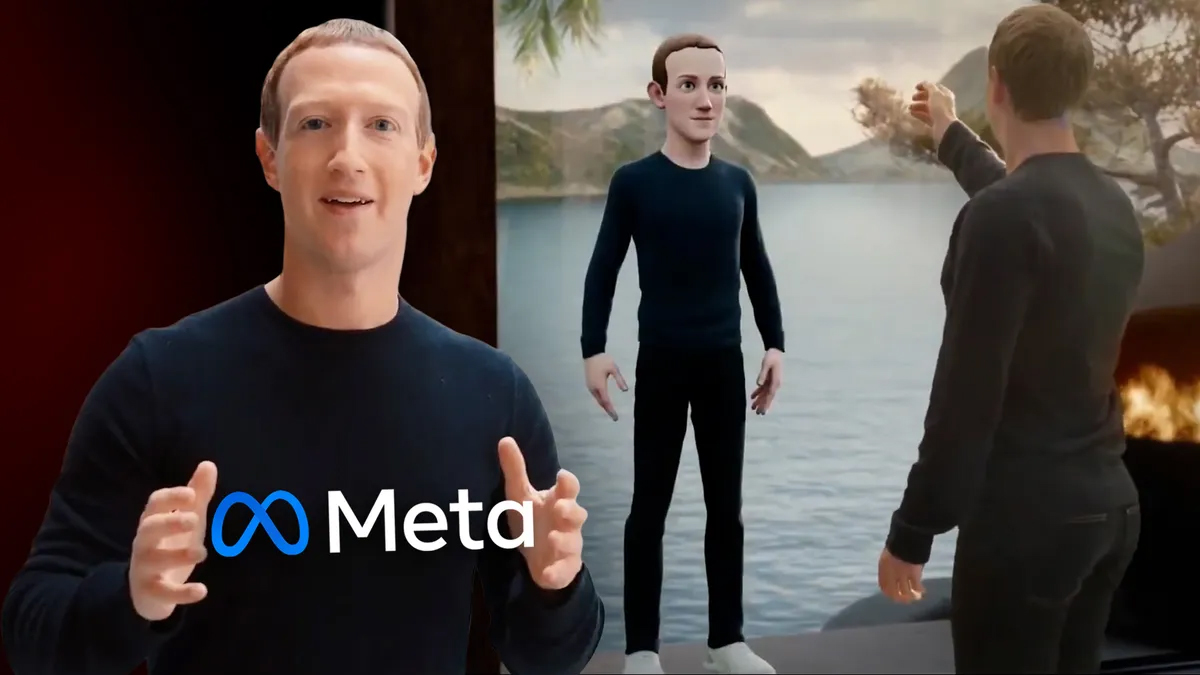The concept of the metaverse has long been a staple of science fiction, a virtual universe where individuals can interact, work, and socialize in ways that transcend physical limitations. In recent years, Facebook, now Meta, has taken bold strides towards making the metaverse a reality. This in-depth exploration delves into the origins, ambitions, technological foundations, societal implications, and the transformative potential of Facebook’s metaverse—a vision that promises to reshape the landscape of social interaction and digital experiences.
- Origins of the Metaverse Vision: Meta’s Evolution from Facebook
The metamorphosis of Facebook into Meta marked a strategic shift in the company’s vision. With the metaverse at its core, Meta seeks to redefine how people connect and engage in the digital realm. This evolution is rooted in the recognition of a broader landscape beyond traditional social media—a landscape where immersive, interconnected experiences take center stage.
- Defining the Metaverse: Beyond Virtual Reality
The metaverse represents a collective virtual shared space that combines aspects of augmented reality (AR) and virtual reality (VR). It goes beyond the confines of current social media platforms, offering a persistent, immersive digital space where users can interact with each other and digital environments in real-time.
- Technological Foundations: VR, AR, and Beyond
Virtual and augmented reality technologies form the bedrock of Meta’s metaverse vision. The Oculus VR platform, acquired by Facebook in 2014, plays a central role, providing a gateway to immersive virtual experiences. Augmented reality, as seen in devices like Facebook’s Ray-Ban Stories, further extends the metaverse into the physical world.
- Horizon Workrooms: Redefining Remote Collaboration
Meta’s Horizon Workrooms exemplifies the metaverse’s potential for remote collaboration. This virtual meeting space leverages VR technology, allowing users to engage in meetings, brainstorming sessions, and collaborative work in a shared, digital environment. The fusion of real-world productivity and digital immersion is a testament to the metaverse’s versatility.
- Social VR Experiences: Oculus and Beyond
Facebook’s acquisition of Oculus laid the groundwork for immersive social experiences within VR. Oculus Venues, for instance, enables users to attend concerts, sporting events, and social gatherings in a virtual arena. These social VR experiences provide a glimpse into the metaverse’s potential to redefine how people connect and share experiences.
- Avatar-based Interaction: Digital Identity in the Metaverse
In the metaverse, users navigate digital realms through avatars—digital representations of themselves. These avatars serve as the bridge between physical and virtual identities, fostering a sense of presence and personalization in the digital space. The evolution of avatar-based interaction is key to creating a more immersive and authentic social experience.
- Economic Opportunities: The Metaverse as a Marketplace
Meta envisions the metaverse as not only a social space but also an economic ecosystem. The metaverse could serve as a marketplace where users engage in virtual commerce, creating and trading digital assets, participating in virtual events, and even establishing digital businesses. The potential for economic opportunities within the metaverse is vast and multifaceted.
- Challenges and Ethical Considerations: Navigating a Virtual Frontier
The metaverse’s development is not without challenges. Ethical considerations, including issues of privacy, security, and digital addiction, demand careful navigation. Balancing innovation with responsible development is crucial to addressing concerns related to the metaverse’s impact on mental health, data privacy, and societal dynamics.
- Societal Impact: Redefining Social Norms
The metaverse’s emergence raises questions about its impact on societal norms and interpersonal relationships. As digital interactions become more immersive, the lines between virtual and physical reality blur. Examining the sociocultural implications of a metaverse-driven world is essential for understanding how this transformative technology will shape human behavior and interaction.
- The Road Ahead: Meta’s Commitment to the Metaverse Vision
Meta’s dedication to the metaverse vision is evident in its strategic investments, acquisitions, and ongoing research and development initiatives. The road ahead involves refining existing technologies, addressing challenges, and continually expanding the metaverse’s capabilities to align with evolving user needs and expectations.
Conclusion
Facebook’s transformation into Meta signals a pivotal moment in the evolution of the internet—a shift towards a more immersive, interconnected digital space known as the metaverse. As Meta pioneers this vision, the metaverse holds the promise of reshaping how individuals socialize, work, and engage with digital content. From virtual reality meetings to shared digital experiences, the metaverse transcends the boundaries of traditional social media, offering a glimpse into a future where the digital and physical worlds seamlessly coexist. As the metaverse journey unfolds, society is presented with unprecedented opportunities and challenges that require thoughtful consideration, ethical navigation, and a collective effort to ensure that the metaverse enhances human connection, fosters creativity, and contributes positively to the fabric of our shared digital future.
